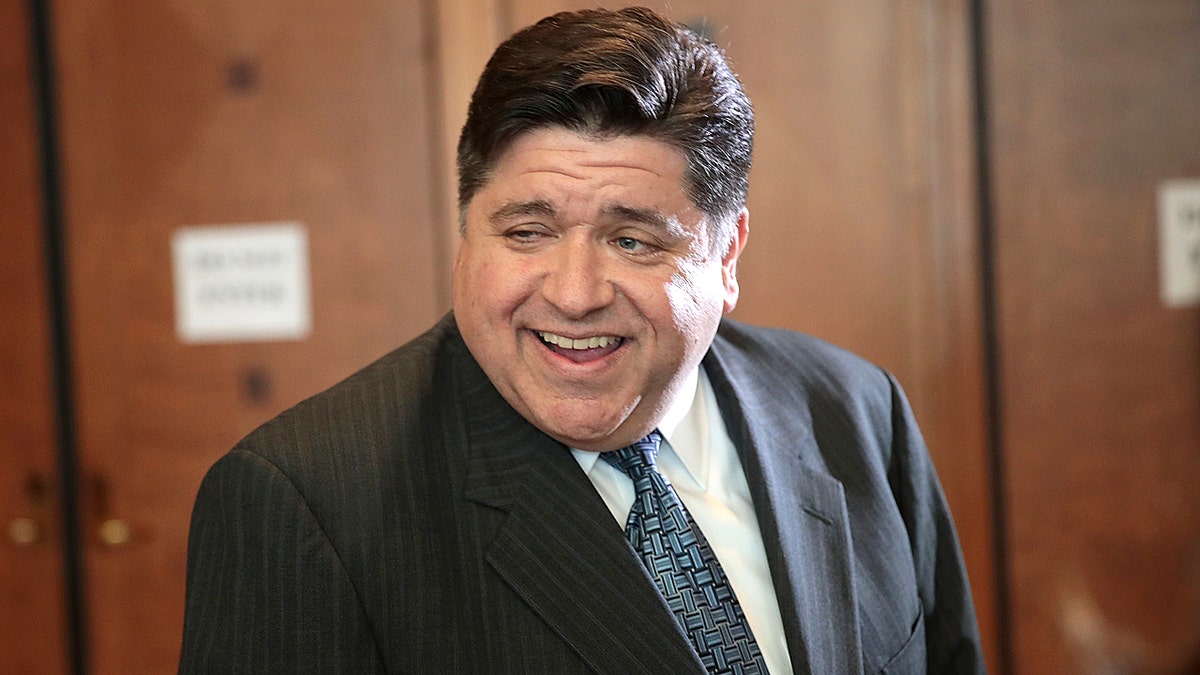Illinois set to eliminate cash bail in 2023
Illinois State Rep. Patrick Windhorst joined 'Fox & Friends First' to discuss the impact the policy will have on public safety.
Illinois is set to eliminate cash bail beginning in 2023, becoming the first state in the country to do so and potentially allowing the release of violent offenders until they stand trial.
Illinois State Rep. Patrick Windhorst (R), who voted against the measure, joined "Fox & Friends First" Tuesday to discuss the impact the policy will have on crime, citing some Democrats who even regret voting in favor of the bill already.
"I know several people who voted for it have had second thoughts and realized just what exactly this bill is going to do," Windhost told co-host Carley Shimkus. "This was one provision in an over 700-page bill that passed in the waning hours of the last General Assembly, was really pushed through in the last few hours. So a lot of people who voted for it didn't realize what was in it."
LIGHTFOOT SAYS CHICAGO MAKING PROGRESS ON CRIME DESPITE CONTINUED VIOLENCE, BUSINESSES LEAVING
"Unfortunately, we have not taken completely what the victims want and looking at what they may need to feel safe," he continued. "And instead, we're focused more on those who are committing the crimes."
The governor of Illinois, J.B. Pritzker, signed the Safety Accountability and Fairness Equity Today Act (Safe-T Act) last year, but the legislation is set to take effect on January 1 of 2023.

Illinois Gov. J.B. Pritzker attends the Idas Legacy Fundraiser Luncheon on April 12, 2018, in Chicago, Illinois. (Scott Olson/Getty Images))
The bill will also affect who can be arrested and expand eligibility for criminals vying for probation.
"My concern is this is going to have a tremendous impact on public safety and in a negative way, and is going to lead to more crime in our communities, particularly violent crime," Windhorst said. "We've seen some versions of bail reform in Illinois over the last four or five years, and what's occurred when those went into effect is crime has gone up over that period of time."
CLICK HERE TO GET THE FOX NEWS APP
"Cook County, which houses Chicago, has its own version of bail reform in that county, and again, we've seen an increase in crime in the last several years in Cook County," he continued.
Windhorst warned the new law will impact everyone as violence surges in areas within the state, prompting many businesses to flee in search of safer communities.
"It's going to impact everyone from the top to the bottom of the state," Windhorst said. "And beginning January 1st, I believe it is going to get worse."
"Crime in Illinois from the mid-1990s and mid 20 tens was declining," he continued. "The violent crime rate decreased by about 50% in the last five or six years. Crime has gone up and a lot of it has to do with these reform efforts that are just too much, too soon."



